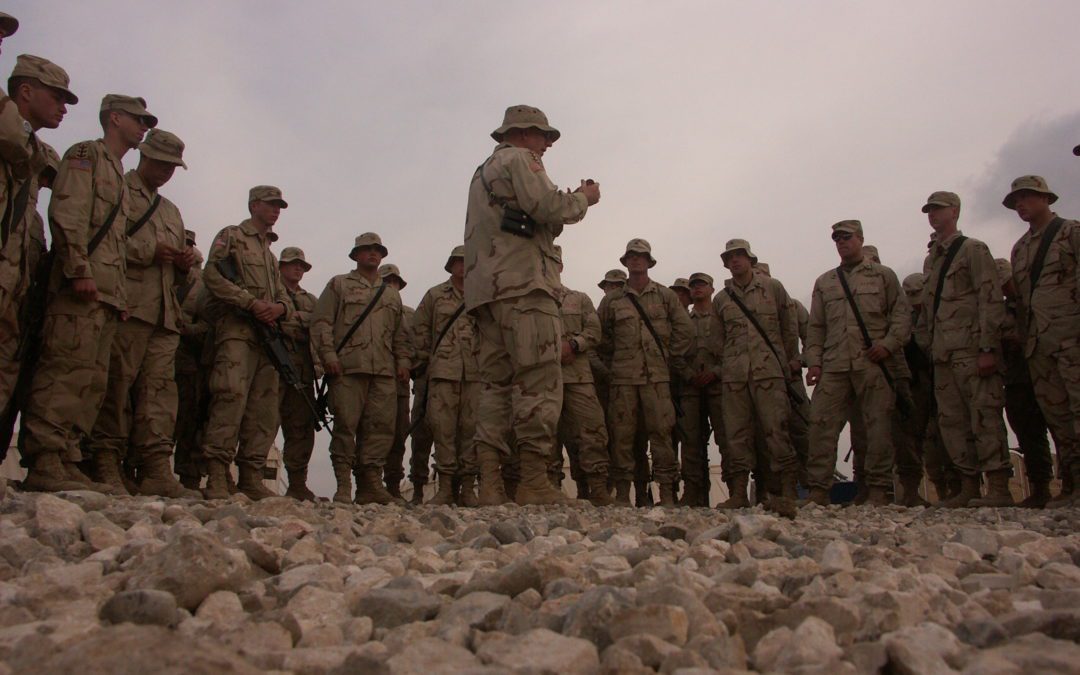Author: Major General Gregg F. Martin, PhD, US Army Retired
I gradually spiraled then crashed into depression after my resignation from the National Defense University (NDU.) My depression was increasingly characterized by diminished energy, hopelessness, anxiety and psychosis (mainly delusions.) It was at this point, in November 2014, that I was diagnosed with Bipolar Disorder Type I.
Now I was in the depression phase of bipolar disorder, formerly known as manic depressive illness. My major depression and psychosis worsened steadily through my retirement from the Army in May 2015 and continued through a move to New Hampshire in June 2015. In March2016, I was admitted to the Psychiatric Inpatient Ward at the VA Hospital in White River Junction, Vermont, where I was treated for weeks.
In hindsight, during the years following my 2003 Iraq War experience, I had experienced periods of depression, though none were crippling enough to prevent me from accomplishing my assigned duties.
I powered through, with my own form of self-medication — hyper religiosity and positive thinking, intense exercise, and off-duty, non-deployed alcohol consumption.
In each depressive episode, I gradually regained my interest, drive and motivation to achieve and succeed. The structured routine of Army life was also a critical ally in helping to pull me through my depressive episodes.
But now I was severely crippled by depression, and terrified by the delusion that I had committed financial fraud against the U.S. Government. I lived in perpetual fear that I would be arrested, convicted, tortured, and murdered in prison – beaten and stabbed to death, gurgling in a pool of my own blood as I died face down on the hard, cold, concrete slab.
Or I would imagine being stripped of my achievements and retirement, retroactively demoted, and lose all my pension and medical benefits, leaving my wife in poverty, and me homeless and dying on the streets.
I was convinced that my closest colleagues were conspiring against me, wearing recording wires, and that I was being videotaped 24/7. I was living in a state of pure madness.
Although it had worked for years, my previously successful formula for self-medication no longer worked. My depression and delusions were so powerful that eventually I did not even have the energy or will to try the self-medication that had pulled me through previously.
These delusions were totally fabricated by my own bipolar-damaged brain, but I believed them to be completely true. I was absolutely convinced that the delusions were real. I was certain that I would be better off dead – dying before “they” could arrest me.
My psychotic mind was filled with vivid thoughts of death and dying, and ideas of how I quickly and painlessly could be killed – thrown by an ‘invisible force’ underneath a speeding 18-wheeler truck, or that same ‘force’ steering me head on into an oncoming truck.
I later learned in the VA that these thoughts are called “passive suicidal ideations”. But they were anything but ‘passive’ for me. They were terrifying, real, and in living color.
By the grace of God, my suicidal ideations remained passive and never became active. I never wanted to take my own life — which so many people with bipolar and other brain maladies do — but could not see any other viable alternative to dying. And the sooner I died, the better, before “they” came to arrest me.
To be continued…
This series of blogs tells the story of a general’s service and success, followed by mental health disaster and recovery, then new life. The purpose is to raise understanding, build hope, and help abolish the stigma. The views expressed are those of the author and do not necessarily represent the views of the Department of Defense or the US Government. This piece was originally published in Task&Purpose.
Gregg F. Martin, PhD, is a 36-year Army combat veteran, retired two-star general, and bipolar survivor. A former president of the National Defense University, he is a qualified Airborne-Ranger-Engineer and strategist. A graduate of West Point and MIT, he writes and speaks on his bipolar experiences to help stop the stigma and save lives.
For more information, visit www.generalgreggmartin.com. His charity of choice is the International Bipolar Foundation.


